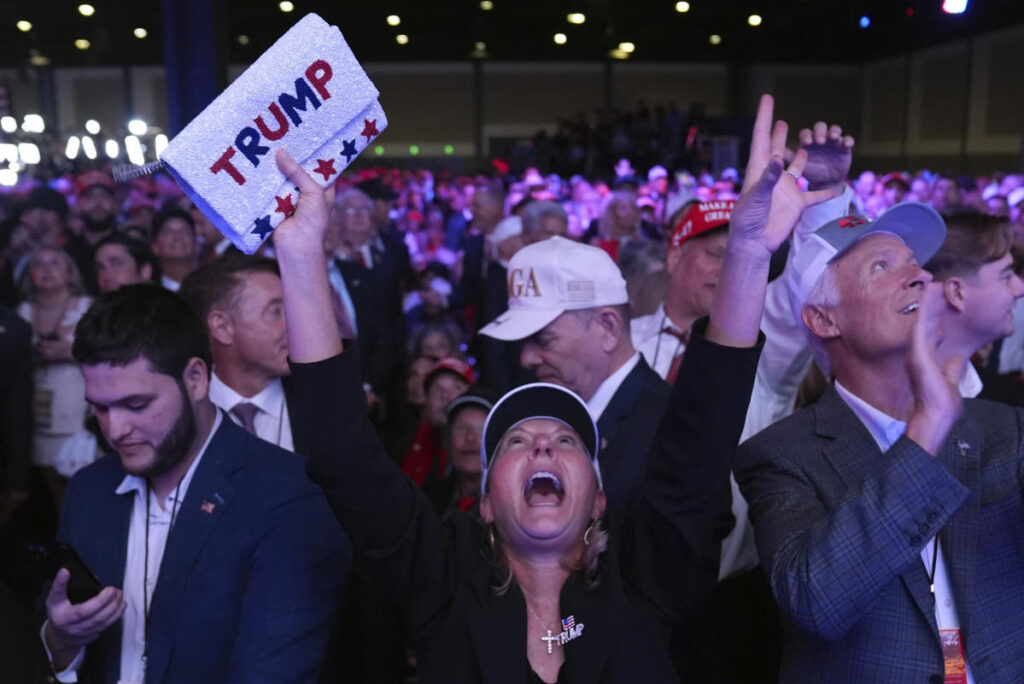As election night unfolded, the American public was glued to their screens, anxiously awaiting the results that would determine the nation’s leadership. The atmosphere was charged with emotions as supporters of both Vice President Kamala Harris and former President Donald Trump reacted to each update. In Florida, Trump supporters were exuberant, reveling in their candidate’s strong showing, especially his victory in Georgia — a state he had narrowly lost in the previous election. This moment underscored the heightened enthusiasm surrounding Trump’s campaign, one that seemed to resonate powerfully with a significant segment of the electorate.
In striking contrast, Harris supporters experienced a night filled with disappointment and uncertainty. The announcement that Harris would not address her supporters at Howard University further deepened the sense of despair among her followers. Faces were marked by worry as Trump continued to make strides in states that had previously favored Biden, highlighting a growing disconnect between the administration’s hopes for reelection and the reality reflected in the changing political landscape.
The mood at various watch parties illustrated the stark divisions in American society. While Trump’s supporters celebrated potential victories with smiles and hugs, those backing Harris grappled with a sense of foreboding, reflecting the challenges that the Democratic Party faced in retaining the support it had enjoyed just four years prior. As the night progressed and results poured in, it became evident that the enthusiasm for Trump was translating into tangible electoral advantages, further energizing his base.
The contrast in the reactions of both camps underscored a pivotal moment in American politics. For Trump’s supporters, watching states flip in his favor reaffirmed their beliefs and commitment to his candidacy, as each state call brought cheers and shared elation amongst the crowd. Conversely, the Democratic watch parties painted a picture of struggle and trepidation, as supporters had to confront the possibility of losing ground in critical areas that had once been strongholds for their party.
As results were continuously announced, the emotional highs and lows encapsulated the unpredictable nature of American elections. The palpable anxiety among Harris’s supporters was compounded by a sense of defeat as they witnessed Trump’s resurgence. The night not only highlighted the immediate electoral consequences but also hinted at the deeper ideological rifts and shifting demographics that could reshape future elections.
Ultimately, election night served as a significant reflection of the nation’s polarized political environment. The enthusiastic celebrations of Trump supporters contrasted sharply with the despondent faces of Harris’s followers, pointing to a landscape fraught with challenges for the Democratic Party. As the night went on, many began to ponder the implications of these results for the future of American politics and the ongoing cultural battles that define the electoral process in the nation.

